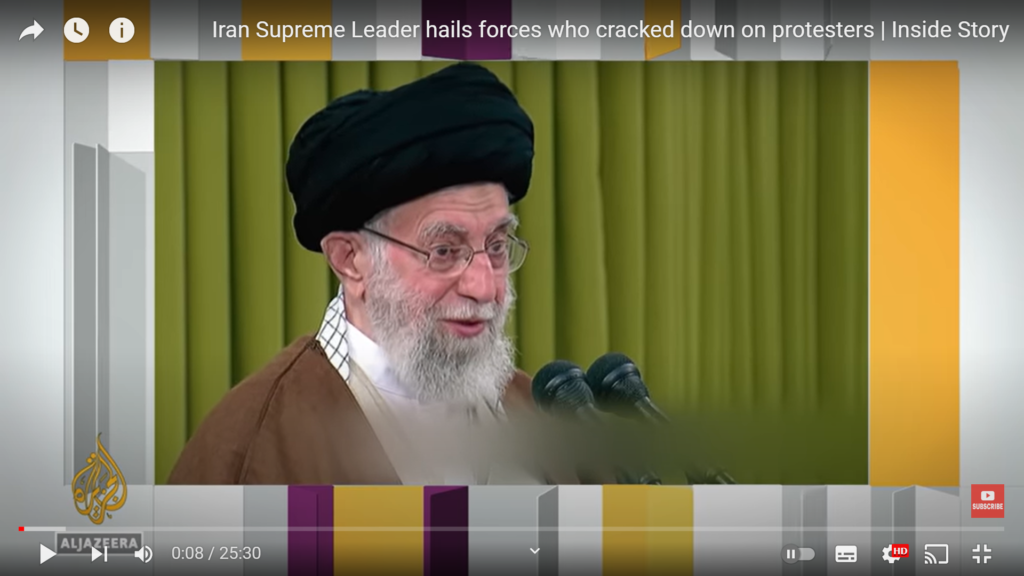Senior officials in the Iranian regime welcome the agreement reached by Iran with Saudi Arabia, after negotiations that lasted through 5 rounds of talks in Iraq and Oman, and say that the agreement is an achievement for Iran and a blow to its enemies, led by the US and Israel.
The Iranian leadership sees the agreement reached as a basis for the renewal of relations between Iran and some of the Gulf countries, including Bahrain, and for the normalization of relations between Iran and Egypt.
In their estimation, the agreement has the potential to reduce international pressure on Lebanon and improve relations between Syria and Arab countries and the return of Syria to the Arab League.
The senior Iranians also say that the agreement between Iran and Saudi Arabia is the beginning of the solution to the crisis in Yemen and the end of the war that has been going on for 7 years.
The Houthi rebels in Yemen, the “Ansar Allah” militia, are loyal to Iran and are waging a war against the legal government in Yemen and against Saudi Arabia, they are supported by money and advanced weapons they receive from Iran and are waging a tough war against Saudi Arabia and the United Arab Emirates, which also included in recent years the launching of hundreds of precision missiles and drones towards Saudi Arabia and the United Arab Emirates and damage to strategic targets and their oil facilities.
Mohammed Abdel Salam, the official spokesman for the Houthi rebels in Yemen, welcomed the agreement between Saudi Arabia and Iran and said that the region needs a return to normal relations between the countries and accused the US and Israel of encouraging, according to him, the internal disputes in the Middle East.
However, Iran also says that caution should be exercised because if the implementation of the agreement between it and Saudi Arabia does not progress, the return to zero point could be very quick.
According to the agreement signed between Iran and Saudi Arabia, the embassies of the two countries are to be opened within two months, in Saudi Arabia it is estimated that Iran will take steps during this period to calm the situation in Yemen so that a comprehensive ceasefire agreement can be reached.
The question is how much influence Iran has and whether the Houthi rebels will respond to its requests regarding the possibility of ending the war in Yemen.
The coming months will be a test of the seriousness of the Iran-Saudi agreement and its ability to bring an end to the war in Yemen, Iran’s intentions will become clear, whether it is trying to buy time in the long conflict in Yemen or whether it is indeed a serious intention to resolve the conflict.
The agreement between Iran and Saudi Arabia has the potential to strengthen the position of Iran and its allies in the region, the Gulf countries recognized the weakness of the Biden administration in everything related to Iran and therefore the United Arab Emirates renewed official relations with Iran a year ago, now it is Saudi Arabia’s turn.
Commentators in the Gulf estimate that the agreement between Iran and Saudi Arabia removes for now the possibility of signing a normalization agreement between Israel and Saudi Arabia.
Saudi Arabia is in no rush for such an agreement, it has already achieved calm in its relations with Iran and now it is trying to extort from Israel real progress in the Palestinian track and from the US advanced weapons and nuclear knowledge in order to agree to progress in the normalization with Israel.
The agreement between Saudi Arabia and Iran harms the efforts of the US and Israel to establish an anti-Iranian Arab bloc in the Middle East, thanks to the agreement with Saudi Arabia, Iran gained a diplomatic advantage over Israel.
The agreement may also pave the way for Iran’s return to the nuclear talks and the signing of a new nuclear agreement, while the US’s position in the Middle East is weakened and China’s position is strengthened after mediation between Iran and Saudi Arabia.
The sanctions imposed by the Western countries on Iran in recent years have greatly weakened the Iranian economy, and to this must also be added the unprecedented Hijab protest, which in the last six months has further undermined the economic and security situation.
Since the beginning of this year, the Iranian Rial has lost 30 percent of its value against the dollar, Iran has annual inflation of more than 50 percent, the middle class has been hit the hardest economically and the cost of living has skyrocketed .
The Iranian street is discouraged by the situation mainly because of the conduct of the regime, the supreme leader Ali Khamenei understands this and fears for the survival of the regime, he understands that Iran’s signature on a new nuclear agreement will greatly improve the Iranian economy.




